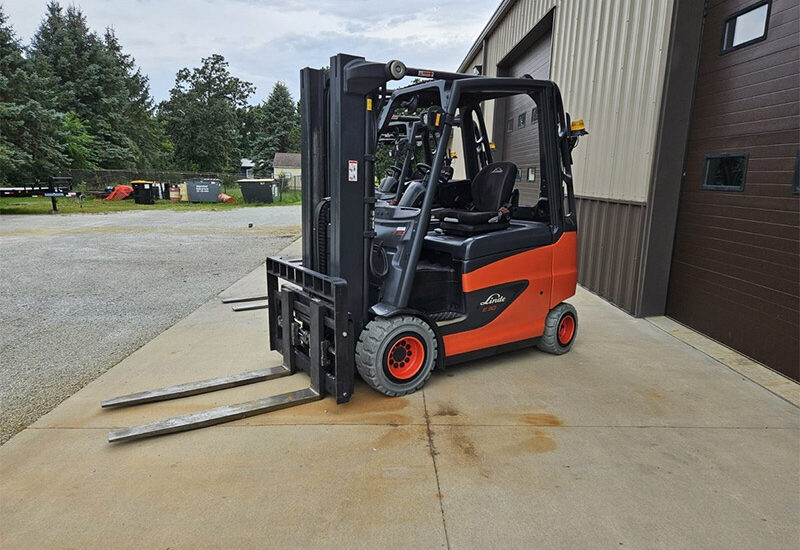The forklift industry forms the backbone of modern logistics, warehousing, and manufacturing. Within Europe, a number of established brands lead the market with cutting‑edge technology, robust designs, and a focus on safety and sustainability. European forklift manufacturers are recognized internationally for their quality engineering and innovation, catering to industries ranging from retail and automotive to heavy construction. Here is a closer look at the leading European forklift brands and what sets them apart.
1. Linde Material Handling (Germany)
Linde Material Handling, part of the KION Group, is one of the most prestigious forklift brands in the world. Headquartered in Aschaffenburg, Germany, Linde has built its reputation on engineering excellence and ergonomic design.
- Product Range: Linde produces electric forklifts, diesel and LPG forklifts, pallet trucks, reach trucks, and order pickers. Their trucks can handle loads from 1,000 kg to over 8,000 kg.
- Key Strengths:
- Advanced hydrostatic drive system, providing smooth acceleration and precise control.
- High focus on operator comfort with adjustable seating, intuitive controls, and reduced vibration exposure.
- Commitment to automation and digital warehouse solutions.
- Innovation: Linde invests heavily in automation and connectivity, offering robotic forklifts and fleet management software that integrate seamlessly into smart warehouses.
2. Jungheinrich (Germany)
Based in Hamburg, Jungheinrich is another global leader in intralogistics, specializing not only in forklifts but also in entire warehouse solutions. Founded in 1953, the company is renowned for innovation in electric technology.
- Product Range: Electric counterbalance forklifts, reach trucks, narrow‑aisle trucks, and storage solutions. Their electric forklift line is particularly respected for efficiency and sustainability.
- Key Strengths:
- Pioneering role in lithium‑ion battery integration.
- Wide range of automation products, including AGVs (Automated Guided Vehicles).
- Strong presence in software-driven warehouse optimization.
- Sustainability: Jungheinrich was one of the first forklift manufacturers to roll out eco-friendly lithium-ion powered lines, reducing emissions and energy waste for fleet operators.
3. Still GmbH (Germany)
Still, part of the KION Group alongside Linde, is another heavyweight with roots dating back to 1920 in Hamburg. Still is differentiated by its focus on advanced intralogistics solutions and hybrid technologies.
- Product Range: Forklifts with electric, diesel, and LPG power, reach trucks, order pickers, tow tractors, and warehouse automation systems.
- Key Strengths:
- Known for hybrid energy systems, combining internal combustion engines with electric drives.
- Strong service network across Europe.
- Excellent ergonomics and low total cost of ownership.
- Market Edge: Still equipment is often praised for its precision and energy efficiency, making it popular among companies seeking sustainable alternatives to older fleets.
4. Manitou (France)
Manitou, headquartered in Ancenis, France, is a specialist in material handling equipment, particularly for rough terrain environments. Founded in 1958, the company is globally recognized for its rugged machines.
- Product Range: Rough‑terrain forklifts, telescopic handlers, aerial work platforms, and compact loaders.
- Key Strengths:
- Specialization in off‑road and heavy construction forklifts.
- Innovative design tailored to outdoor industries like agriculture, forestry, and construction.
- Dependable machines built for challenging environments.
- Niche Advantage: Unlike many competitors focused solely on warehouse operations, Manitou’s strength lies in outdoor versatility. Their rough‑terrain forklifts are a benchmark in their category.
5. Fantuzzi / Terex (Italy)
Italy’s Fantuzzi, acquired by Terex in 2009, carved out a reputation for heavy-duty handling solutions, especially in ports and container terminals. Though more niche compared to brands like Linde or Jungheinrich, Fantuzzi forklifts are prized for power and performance in industrial logistics.
- Product Range: Reach stackers, container handlers, and forklift trucks designed for heavy loads.
- Key Strengths:
- High-capacity machines built for ports, shipping yards, and industrial sectors.
- Durability and reliability under extreme workloads.
- Notable Use: Terex‑Fantuzzi forklifts are common in global shipping hubs, where efficient container movement is critical.
6. Kalmar (Finland)
Kalmar, part of the Cargotec Corporation, is headquartered in Helsinki. A leader in heavy cargo handling, Kalmar forklifts are designed for demanding environments such as shipping and industrial manufacturing.
- Product Range: Heavy forklifts (lifting 5–72 tonnes), container handlers, and automated port cranes.
- Key Strengths:
- Specialization in high-capacity forklifts for ports and steel industries.
- Introduction of eco‑efficient models, including electric heavy forklifts.
- Pioneers in port automation and digital fleet solutions.
- Innovation: Kalmar is advancing zero‑emission heavy forklifts as part of Europe’s sustainability push in maritime logistics.
7. Clark Europe (Germany)
Although Clark is originally an American brand, Clark Europe GmbH, based in Duisburg, manages its strong footprint in the European market. Clark is sometimes credited with inventing the forklift in the early 20th century, and its European branch continues that heritage.
- Product Range: Diesel, LPG, and electric forklifts, pallet trucks, and tow tractors.
- Key Strengths:
- Balance between affordability and reliability.
- Broad dealership network across Europe.
- Reputation: Known as a workhorse brand, Clark forklifts offer solid performance at competitive prices.
8. Combilift (Ireland)
Founded in 1998, Combilift is headquartered in Monaghan, Ireland, and is renowned for its innovative multi-directional forklifts.
- Product Range: Multi-directional forklifts, side loaders, straddle carriers, and pedestrian stackers.
- Key Strengths:
- Exceptional innovation for handling long or awkward loads like timber, steel bars, and pipes.
- Customized solutions tailored to customer needs.
- Unique Value: Combilift’s equipment can travel sideways, enabling improved space utilization in tight warehouse conditions.
Conclusion
Europe is home to some of the world’s most influential forklift manufacturers, from giants like Linde, Jungheinrich, and Still, to specialists like Manitou and Combilift. These brands have shaped global material handling standards through innovation, sustainability, and product diversity. For entrepreneurs and businesses, choosing among these manufacturers often depends on operational needs: heavy-duty and port logistics lean toward brands like Kalmar and Terex‑Fantuzzi, while indoor warehouses benefit from efficient electric fleets by Linde or Jungheinrich.
Ultimately, Europe’s forklift industry reflects the continent’s broader reputation for engineering excellence—combining functionality, efficiency, and a forward-looking embrace of automation and sustainability.

